David Lowery is the singer and co-founder – along with Johnny Hickman – of the alt-rock band Cracker, whose well-known early 90’s songs include “Teen Angst (What the World Needs Now)”, “Low”, and “Euro-Trash Girl”. In 2014, the band released its 9th studio album, Berkeley to Bakersfield, with the Berkeley disc featuring the band’s original line-up for the first time in ages and drawing on their punk rock influences, and the Bakersfield disc in a California country vein.
Lowery is also a founding and continuous member of the eclectic alternative rock band Camper Van Beethoven, to which he contributes vocals and guitar. Camper Van Beethoven’s first album, Telephone Free Landslide Victory, came out in 1985, and includes such classic songs as “The Day That Lassie Went to the Moon”, “Where the Hell is Bill?”, the Black Flag cover “Wasted”, and “Take the Skinheads Bowling”. They released four more acclaimed albums before burning out, the independently-released II & III and self-titled Camper Van Beethoven, and the major-label albums Our Beloved Revolutionary Sweetheart and Key Lime Pie. The band reformed at the end of the end of the 1990’s, and has released several more albums.
This interview was for a preview article for Cracker’s concert at SLO Brew in San Luis Obispo on 7/6/15. It was done by phone on 6/25/15.
Jeff Moehlis: What can people look forward to at the upcoming show?
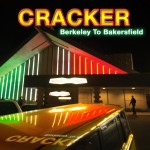
David Lowery: Well, we have a new album out – it’s called Berkeley to Bakersfield. We played a lot of it when we were in Santa Barbara back in December. We’re probably going to be playing a fair amount off of that album, as well as songs from our previous albums. We’re not a band that doesn’t play the hits. We play the hits. You know, we try to play something off of every one of our albums. We don’t always do it, but we generally do, and then play some new stuff.
This is the bigger line-up. This is the Bakersfield line-up, the full country line-up, although we don’t just play country, we also play rock in this. This is actually the line-up that we recorded the Bakersfield disc with, which we didn’t have the last time we played on the West Coast.
JM: Speaking of the new album Berkeley to Bakersfield, it’s interesting how it has the two different personalities. What’s the story behind that? Why did you decide to do it that way?
DL: From the first record we’ve always had songs that, for the lack of a better word, fit the alternative format, some that were rock, and some that were out and out country. Like on the first album there’s a song called “Mr. Wrong”. On the second album there’s a song called “Lonesome Johnny Blues”. So we’ve always had this sort of rock plus country thing within all of the albums. In 2003, we did an album [Countrysides] where we sort of paid homage to the country side of the band – we did covers and a couple new originals. So it started out thinking that it was time to do that again. It was kind of like a once-a-decade kind of thing that we do. So we were working on that disc. I was writing that disc, and working with these folks here in Athens, Georgia – the Bakersfield band, even though it’s Athens, Georgia.
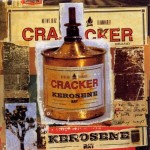
In the middle of all of that, me and Johnny went up to Berkeley and we played with our old rhythm section from the Kerosene Hat days, which was [drummer] Michael Urbano and [bassist] Davey Faragher. These are guys we grew up with. But they’re more or less like session cats now. So we only toured with them a little bit. They made those albums with us, but… You know, Davey plays with Elvis Costello. You know what I mean? These guys are kind of session cats. So it’s not very often that we get together and play. So in the middle of doing the Bakersfield disc, which wasn’t called “Bakersfield”, just “Untitled”, we went to Michael’s place and just kind of jammed, to see if we could make up an album of music. We knocked out basically what the Berkeley album is, sort of in three days. We had to take some of it back here in Athens and retrack some of it, but basically the genesis of that album was done in Berkeley.
So we had these two batches of music, so we were calling them Berkeley and Athens. Of course that didn’t sound as good, so it became Berkeley and Bakersfield. The idea came about, instead of these being two separate discs, we should put these out as one single work, because in a way it explains the band better than anything we’ve done in the past. You know what I mean? There’s this distinct Americana country rock thing that we do, and we have a large following because of that, and then we’re sort of known for our rock hits on rock and alternative radio. It explains the band, so that’s what we did. We didn’t really plan it – it just came together that way.
JM: I lived in Berkeley in the 90’s, so listening to the Berkeley disc made me a bit homesick for the People’s Republic of Berkeley, especially the song “Beautiful”. Do you have any particular Berkeley connection?
DL: Michael Urbano, who’s the drummer on the Kerosene Hat album, he lives in Berkeley. His little rehearsal studio space is right off of San Pablo. I don’t know if you remember the big purple party store place? It’s been there forever – it’s just this real weird building. But it’s right in that neighborhood. It’s not far from Gilman Street. That used to be a pretty gritty part of San Pablo. I don’t think anything’s gritty there anymore, really. But, yeah, it’s just right there.
So we’re in the middle of, as you say, the People’s Republic of Berkeley. I don’t know, you know, it just began to infuse the record. The Berkeley thing has always been the protest movement, the Free Speech Movement, the anti-war movement, all the anarchist political punk rock, the Code Pink stuff. That’s the essence of what Berkeley is, just a general, constant state of development. But musically, it’s pretty diverse. You have everything from hybrid Afro-Cuban-punk… It’s like everything’s a hybrid there, or something. You have your punks there, you have your hippies there, stylistically all this different kind of music. So we just kind of narrowed in on the pop punk stuff that that came out of Berkeley, sort of that period of ’90’s funky alt-rock, and a little bit of solo guitar protest music. I don’t know, I couldn’t do everything. So we were influenced by being in Berkeley, going, “OK, you know, let’s do this, let’s try this.”
JM: I know that this is a Cracker show coming up, but I have to ask you about one Camper Van Beethoven song. A little context – I work at UC Santa Barbara, and I live in Goleta. So I have to ask – do you want to apologize for the song “(Don’t You Go to) Goleta”?
DL: Well, Jonathan [Segel] did that – that’s Jonathan’s song. So I’ll let Jonathan apologize for it. Both his parents were professors at [UC] Davis, so he had a thing against the Southern California campuses. I’m ambivalent about which campus is better than the others, although I am a Banana Slug – I did graduate from UC Santa Cruz with a math degree. I guess Santa Barbara, San Diego, and Santa Cruz are the three that are right on the ocean, and are probably the most culturally similar campuses [laughs].
JM: I do love the Santa Cruz campus. You feel like you’re at summer camp.
DL: Yeah, that’s what they derisively called it in the 60’s and the 70’s – the Los Angeles Times famously referred to it as “Uncle Charlie’s Summer Camp” [laughs].
JM: A little off topic, but I think it’s interesting that you studied mathematics at Santa Cruz. Did you know any of the guys developing Chaos Theory at Santa Cruz in the late 70’s? They also did the gambling stuff where they hid a computer in their shoes when they went into casinos [see the book The Eudaemonic Pie].
DL: Those guys were slightly before my time. But if you look and see who my advisor is, it was Gerhard Ringel. Go to his Wikipedia page, and the picture is a picture of him surfing. This is a German guy who was drafted basically into the Nazi army in 1945 when he was 17, immediately gets captured by the Russians, spends four years in a Russian prisoner of war camp, and learned all this mathematics and all this crazy stuff. And then did the Map Color Theorem, and came to Santa Cruz because he was really interested in surfing. He’s one of the great mathematicians of the last century. He was my advisor, and he was an avid surfer. I mean, you’d often see him in his wetsuit. He wasn’t young either, when he was my advisor.
Those were some wacky guys that were there at the time. Yeah, they were doing chaos theory. There’s a whole weird thing. There were a lot of people trying to factor primes at the time, finding new ways to factor primes. I don’t know if this was just graduate students, or if it was faculty, or whatever. But that was all like code breaking stuff. RSA encryption, where you have one-sided encryption, where there’s a public key and there’s a private key – that hadn’t happened yet. But I know when I was there there was a lot stuff going on around that.
The other thing that was happening there, we had a really good Linguistics Department there, and there was suddenly a push to get everyone into computational linguistics. “We want to start doing linguistics, but have computers translate stuff” – things like that. That’s the seed of what becomes search engines in Silicon Valley, and stuff like that. I actually think, even though we’re not associated with a lot of those breakthroughs in Silicon Valley, we were 20 miles away. We’re just on the other side of the hill, and I feel like the time I went to school there, that’s when all of that was beginning.
My first job out of college was math – math was basically the same thing as computers at that time, in a way, computer science. There was computer science at the University of California, Santa Cruz, but if you graduated in math you basically went and did computers as well, because you were programming shit anyway. My first job was programming what became dBase, just writing routines and stuff for this sort of industrial-sized agri-farm, writing routines in dBase for the CP/M operating system. And then also, I got pretty good – they had a legacy punchcard system, that wasn’t a punchcard anymore. I might be wrong, but I think that used the RPG language. In a weird way, yes I did all that math stuff, but it’s almost like vintage antique tube-power amplifier computer stuff. Punchcard shit.
All the people that were my friends were involved in that. They were all playing in bands. It was a very eccentric time for the scientists at that university.
JM: Do you miss the math/computer world at all? Or do you still follow it?
DL: I’m still involved in it. I’ve kept one toe in it, but it sort of manifests itself in a weird way. Like I’m on the board for an angel fund here in Athens, and then I randomly usually have several positions as some sort of advisor to various tech-y start-ups. The most recent one is reverb.com, which is a vertical competitor to eBay. It’s just music gear, kind of the back end of the Chicago Music Exchange. So yeah, I’ve always kind of kept a toe in there.
I’m doing research right now for UGA [University of Georgia], part of the Institute of Higher Education, because I can do statistics. I love me a good multilinear regression [laughs]. And now you have these wonderful computer programs that are pretty frickin’ plug-and-play. It’s fun to play around with the data. So, yeah, I still do that. But nothing like that goes into my music articles.
JM: OK, back to the music world. What to you is unique about Camper Van Beethoven and Cracker?
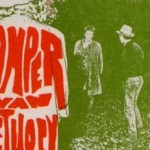
DL: The thing is, if we weren’t related personnel-wise, there’d be more talk about the similarities between the two bands. The thing about Camper Van Beethoven, there are four people in that band that can make their own records, sing their own songs, write their own music, and are quite good instrumentalists. The songs tend to be written more collectively, and there’s a lot of struggling to be heard by all of the instruments, and we have to figure out how to balance that all out. Like Greg [Lisher]’s always got an awesome counter-melody, Jonathan has a counter-melody to the counter-melody. I have a vocal melody on top of that. Victor [Krummenacher]’s really melodic on the basslines. It’s very baroque. The techniques and the chords are weird. But then Camper can bang out a song…
You know the last four discs I’ve done have all been California-themed. Cracker kind of divided the state east to west, and Camper divided it north and south – La Costa Perdida and El Camino Real. So there’s a song on El Camino Real, “I’ll Never Darken Your Door”, and in a way the set-up for that song is country rock like Creedence Clearwater Revival, or something like that. And you can easily hear Cracker performing that, but it’s a Camper song so it has a very complex guitar part that goes against the vocal as a counter-melody. You know, we occasionally sing together and stuff like that.
Whereas if Cracker had done that song, me and Johnny would have reverted – because we did 6 people on this last album, but it’s really a four-piece – to where I sing something, and then Johnny answers. It’s the classic Rolling Stones Mick and Keith, you know, it’s the classic duo between the lead guitar and the vocalist. So the structures tend to be a little more simplistic, and we tend to engage with the narrative more. That’s kind of our focus, the narrative to the song.
JM: Cracker had the huge hit song “Low”. How did that song come together, and were you surprised by how big of a success that was?
DL: Yeah. Radio was much more uptight then. The song says “like being stoned”. You know, maybe in California that wouldn’t have been so weird, but you’ve got think about the rest of the country and the rest of the world. So it was a little surprising that that became a hit, just because of what the chorus says.
It’s also unusual in its structure, in that very slightly in this very subtle way it’s almost like hip hop in that it’s like one pattern that repeats itself, but you put different stuff on top of it. It’s not like a traditional rock song. You don’t change chords in the chorus. It’s one pattern that’s happening, the bass, the drums, and the acoustic guitar. And then Johnny constantly changes what he’s doing on top of that, and I change what I’m doing singing-wise on the top of that. So it’s not even really a very traditional form. It didn’t seem like that would be a hit.
But then again, that’s the thing about hits. Usually they tend to not sound like… Well, not usually. There’s probably some chaos theory here. Songs go around. Like, you have a series of songs that are hits. And then you have a bunch of songs that are similar that are hits. And then a few more that are similar to those that are hits. And at some point that dwindles and it breaks, because there’s a new set of songs. So we were fortunate that we had one of those songs that kind of breaks with the mold and becomes a hit.
And a lot of that depends on luck. Like, if we’d have done that two years earlier, I don’t know if it’d have worked. If we’d have done it two years later, I don’t know if it would have worked. It would’ve sounded different and unusual to people’s ears. That made that song a hit. I personally think it’s all based on luck, and statistically you could argue that skill [laughs] is not a statistically significant variable.
JM: It does seem that way sometimes. Back in that era when “Low” was a hit, in the early to mid-90’s, what was the good, the bad, and the ugly about the alt-rock world?
DL: The facial hair [laughs].
JM: Is that good, bad, or ugly? [laughs]
DL: Ugly! That’s the ugly! That’s the stuff that you look back on and go, “Ooo… The 90’s… Oooo… Why did we do that with our beards?” Like a little soul patch.
It was a good time, though, in the sense that there were a lot of bands that came out that didn’t really sound like things that had come before them, and ended up getting pushed by the music business in general. You know, we can make fun of the 90’s and the Grunge sound, but it was actually fairly diverse. I mean, on one hand you have stuff like Hootie and the Blowfish, or Counting Crows doing their neo-classical rock. And, you know, on the other hand you have experiments gone bad, with rap metal and stuff like that.
Rock radio really was playing a great diversity of stuff. I don’t know if it was all good. I don’t know if you can even really judge it now. I find myself sometimes hearing a band from the 90’s, a song that I really couldn’t stand, and going, “Wait a minute, this is actually pretty clever” [laughs]. Or listening to something from that time that I thought was really cool, and going, “God, this is actually really terrible. How could I like this?” So there was a diversity. The good thing was there was a great diversity of sound and style from that time. I don’t know if we see as much today, on popular radio. Obviously there’s the wide open internet. In some ways there’s never been a better time for a music fan because there’s an unbelievable variety of stuff out there to listen to. But as far as mainstream culture goes, I think it was a little broader then than it is now.
Have you heard the YouTube video where the guy plays six pop-country songs, editing between the six pop-country songs?
JM: Is this one of these where the songs all kind of sound the same?
DL: Yeah, you can just edit between different hits, or let them all play at once. Pretty amazing. It’s six Top 10 pop-country hits – more technically, Bro Country from last year.
JM: I haven’t seen that particular one, but I can imagine. [This is what DL is talking about.]
DL: So, I think I’m being slightly objective when I say that there’s sort of this sameness. And then you have to differentiate between what’s in the mainstream versus what’s not. Think about it. Jane’s Addiction was a fairly challenging ensemble for the mainstream public, for them to have those big hits. I teach 18 year olds who think, “That’s unbelievable music!” They’re doing the same thing that we did with Garage Rock from the 60’s. We were like, “This shit is so cool, man!”
JM: I see your name popping up all the time as you’re advocating for musicians to receive fair compensation. Recently, Taylor Swift has also been speaking up about that. Do you sense any shift in attitudes, or is this a losing battle?
DL: Well, first of all, I think it just has to sort itself out anyway. On one hand, recorded music revenue is falling, but music consumption is off the charts. People consume more music than they did. It’s so much easier for them to consume music. I don’t know, unless we’ve written all the songs that need to be written, there’s going to be a demand for people to make music and write music, and they’ll have to be compensated in some way. So, in the long term this problem gets fixed, because it just has to. Culturally, it’s going to. Whether that’s [laughs] markets or people bringing about social change.
In the short term, it’s not clear what’s going to happen. I mean, from my vantage point – my wife runs a fairly famous indie rock club called the 40 Watt in Athens, Georgia – you just see that it’s much harder for these younger bands to make a living. They’re almost all kind of part-timers now, or just doing it for a while and then they’re going to go off and do something else. The middle class of the lower tier bands have kind of been decimated by technological changes.
But I’m not totally pessimistic about this. I think one of the things you see happening right now… This is getting kind of deep in the weeds… I think the Web 2.0 advertising supporting model, that might work for certain things. I don’t think it works for most music. It might work for some music, but at the same time, I think you see this crisis of the Web 2.0 model. Like the PandoDaily, which is a tech blog – they’ve gone to a paywall. A lot of people are sort of going, “OK, the advertising model didn’t work. It pays so little. We’ve got to go back to the subscription model.”
So this is what’s happening with Taylor Swift and Apple, Taylor Swift and Spotify. Economically, the free tiers of the streaming services, especially, don’t really work for most bands, especially independent niche bands. The subscription tiers pay seven or eight times as much, and so I sense that we’re mostly moving towards a subscription tier. Also, because I don’t think the services themselves survive. I don’t think Spotify survives as a free streaming model. I think they lose more money every year. So there are these almost like geological forces [laughs] that are happening.
It’s good for people like me to write 250 different blog posts about it, or Taylor Swift to write three and do more than I’ve done in my years. And I mean that positively. It’s good she did that. But there’s almost like geological forces at work here that change this, so that makes me optimistic in the long term. I just don’t know what happens in the short term.
I think essentially what the free app supported Web 2.0 model does, it asks artists to subsidize the start-ups of these platforms that are owned by large venture capital firms. And I don’t think that’s equitable. It puts the risk onto the wrong people. But you see that across the board. All parts of the economy, globally. It’s not just the streaming services. Everywhere it seems to be a shift of risk back onto those that can least support it, and subsidies for those that don’t need it. That’s not even a partisan observation [laughs]. I mean, that’s just factual.
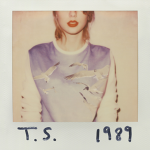
JM: I’m curious, have you been in touch with Taylor Swift about any of this stuff?
DL: Never. I’ve never been in touch with her.
JM: I’m not a huge fan of her music, but it’s nice that someone with that profile is doing it.
DL: Yeah, I mean she could’ve really gotten a severe backlash. She didn’t. It’s fairly brave for someone in her position to do. Yeah, I suppose she probably has enough money that it wouldn’t matter if she had this huge backlash.
I think her stuff is phrased really well [laughs]. She phrases it in a way that, I think, your average person understands. But she also is really careful about phrasing it sort of like, “There’s the producers, and there’s the writers, and there’s the other people who help make the music who are getting shortchanged.” She doesn’t make it about “my money”, so I think she’s done a good job with it.
She also exhibited what you would call in the theory of copyright… there’s a moral rights kind of copyright which we really don’t have in the United States but you have in Europe. She makes a total European moral rights argument to the American public, and they swallowed it [laughs]. It’s really cool. That usually gets shot down in America.
JM: She knows how to sell things, right?
DL: Right.
JM: What are your plans, musical or otherwise, for the near future? Do you have any albums in the works?
DL: I think we’ve got about 50 or 60 more shows on this album, including going back to Europe again. We just went over and did one summer festival in Spain. By the way, for whatever reason, the place on Earth where Cracker has always been the most popular is Spain. I don’t know how that worked – a very eclectic, strange rock music culture they have over there, in particular the festival in the Basque region. So anyway, we just went over there and did that festival. That was the only thing that we were doing. We’ll probably go back in the late fall and do a few more shows over there. So we’ll wind this down just after the New Year, and probably start working on another record.
I would be remiss if I didn’t mention this. Sharknado 3 comes out in July. I’m actually really proud of this, because Camper loved B horror movies and monster movies and bad flicks and all that stuff. We have two new tracks in the Sharknado 3 movie. Don’t expect high art. Think the first album. The director’s very cool, very much more of a Comic Con kind of person than you would think. And they’re coordinating it with an anti-finning campaign, sort of a Save The Sharks campaign. So I should mention that – two new Camper songs on the Sharknado 3 soundtrack.

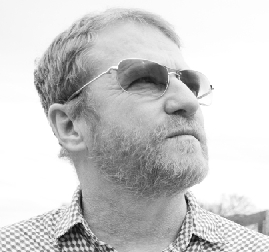
Discussion
No comments for “Interview: David Lowery”